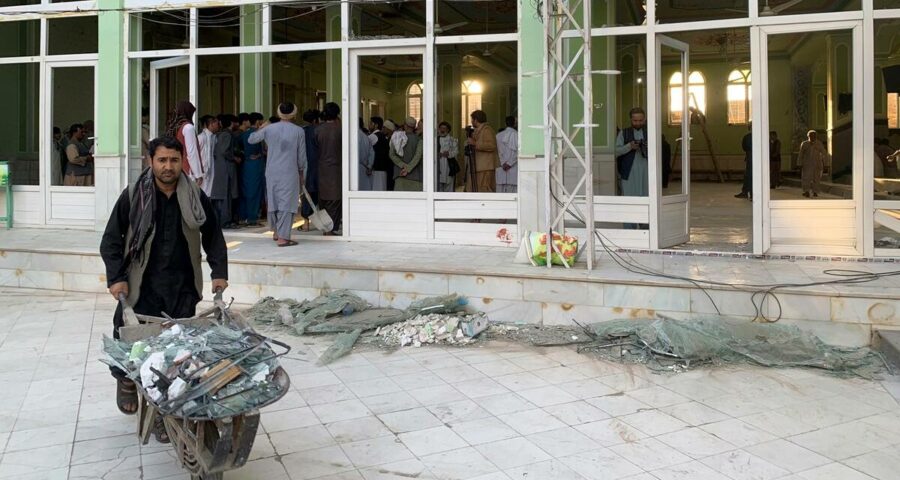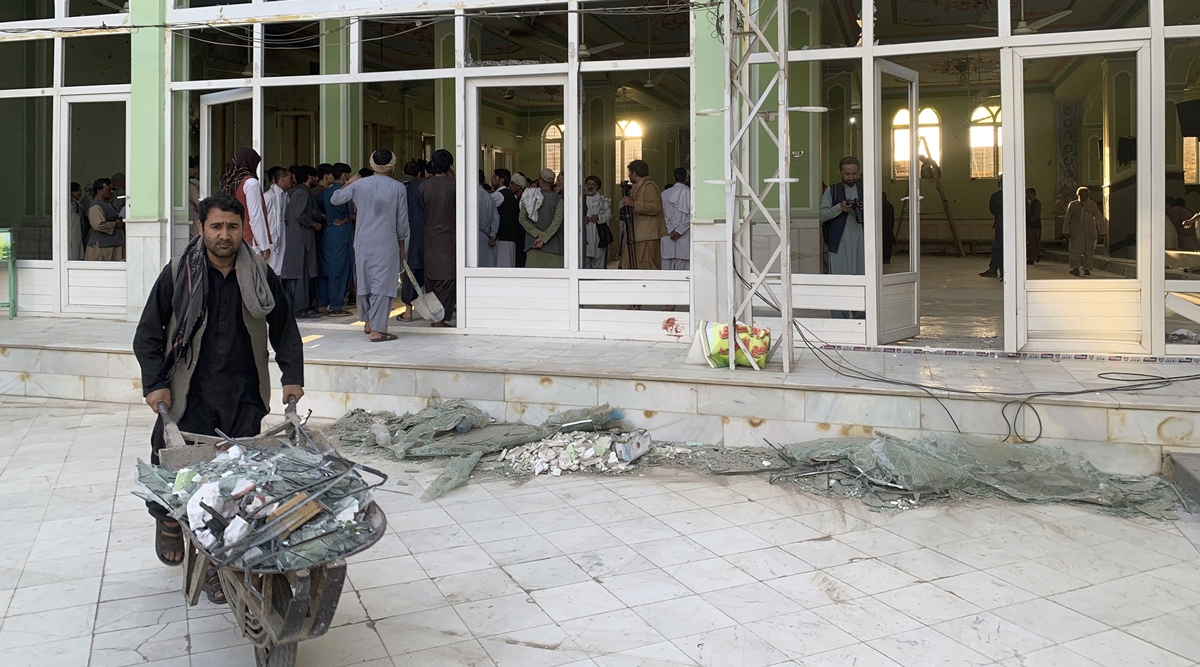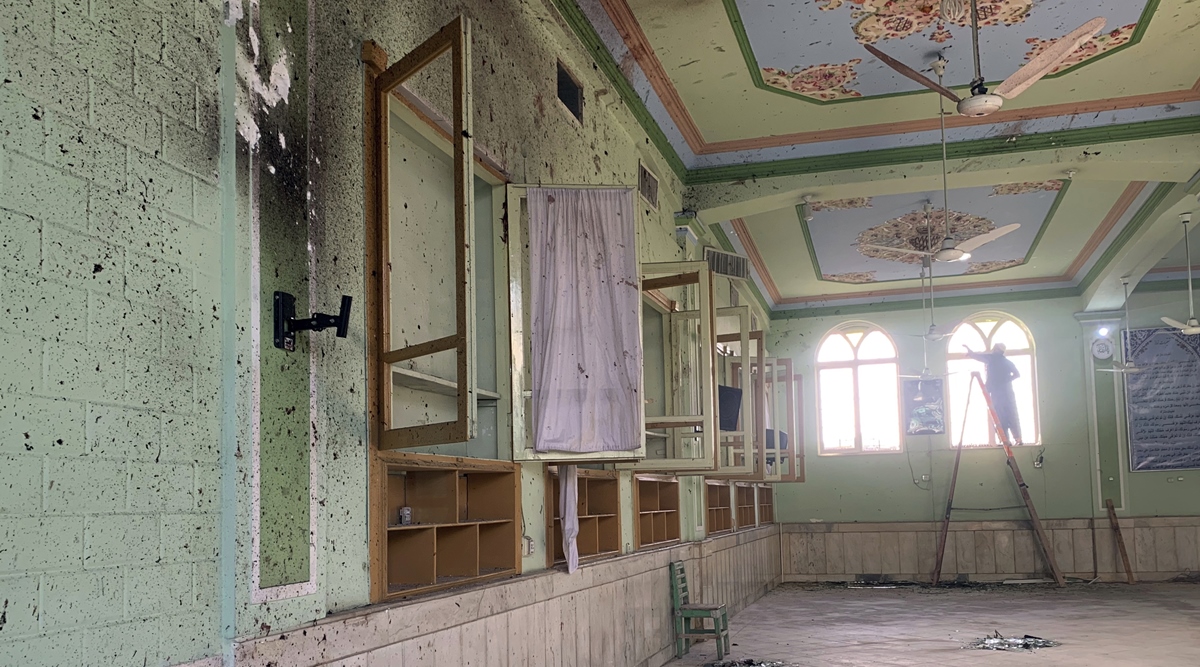Islamic State has claimed responsibility for the suicide bomber attack that killed 35 worshippers and wounded 68 others.
Sardar Mohammad Zaidi, imam of the Fatima mosque in the Afghan city of Kandahar, had almost reached the end of Friday prayers when gunfire and explosions signalled the start of the second attack on a Shi’ite mosque in a week.
The mosque, also known as the Imam Bargah mosque, is the largest of around 40 Shi’ite mosques in Kandahar, the second-largest city in Afghanistan in the south of the country near the border with Pakistan.
“We were almost done with the prayer, at the end of the prayer, I heard the sound of firing,” Zaidi, who has been imam of the mosque for 20 years, told Reuters by telephone. Four suicide bombers tried to get into the mosque packed with some 3,000 worshippers but two were shot by guards at the entrance before managing to detonate their explosives, he said.
In the confusion, the two others were able to enter before blowing themselves up, killing at least 35 worshippers and wounding 68. Zaidi said the toll could have been much worse. “If all four had managed to get inside, it would have been devastating, and you can imagine what would happen,” he said.
Following last week’s Islamic State attack on a Shi’ite mosque in the northern city of Kunduz that killed as many as 80 people, the Shi’ite community, estimated to make up some 10-15% of the country’s population, has been shaken.
IS claims responsibility
Islamic State claimed responsibility for the suicide bomber attack in a statement posted by the group’s Amaq news agency on Friday. The statement added that two Islamic state fighters shot the guards of the mosque dead, broke in and blew themselves up between two groups of worshippers, one of which consisted of around 300 people.
Even before the group issued the statement, Zaidi said he has no doubt Islamic State was behind the attack. But the fact they had struck in Kandahar, heartland of the Taliban movement now ruling Afghanistan, was a shock.
“When the Taliban came, we did not think that such incidents would happen in Kandahar,” he said. “Incidents had happened in Kabul, Kunar, but we never thought it would happen in Kandahar. No one warned us about any threat.”
Source: Read Full Article



